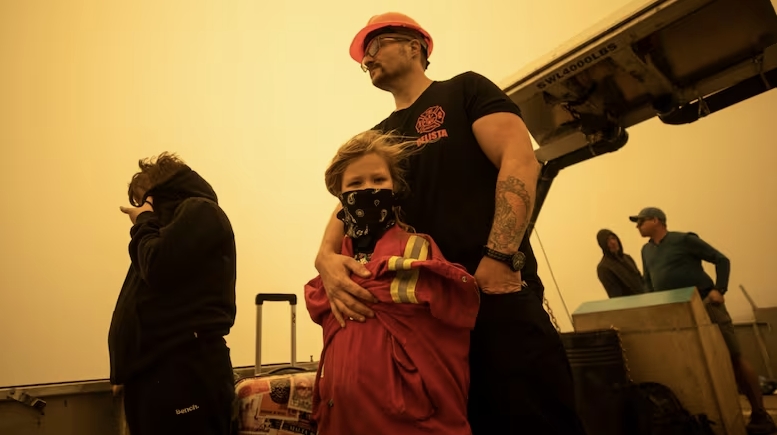B.C. Wildfire Volunteer Program Gets Mixed Response from Interior Communities
Emma MacLeod
3/11/20252 min read


With the 2025 wildfire season approaching, B.C. is rolling out a new volunteer training program to improve local wildfire response in rural and remote communities. But while some regional districts see it as a step forward, others are rejecting the initiative, arguing it shifts costs and responsibilities onto local governments without proper consultation.
The Cooperative Community Wildfire Response (CCWR) program, launched by the province last year, offers $60 million in FireSmart funding to train and equip local volunteer groups to assist B.C. Wildfire Service (BCWS) crews. However, the program does not fund active firefighting, only covering costs for basic training, protective gear, patrols, and post-fire cleanup.
Divided Response from B.C. Communities
At a meeting on Thursday, the Thompson-Nicola Regional District (TNRD) voted to support the program, with General Manager of Operations Jamie Viera saying it will help formalize community-led efforts that already take place during wildfires.
“Community groups are involved in wildfire response whether we want them to be or not,” Viera said. “We want to build those relationships and support those groups.”
However, the Columbia Shuswap Regional District (CSRD) and the Regional District of Kootenay Boundary have declined participation, arguing that the program was rushed, lacks proper consultation, and downloads costs onto local governments.
“We were surprised in October to learn that regional districts were solely responsible for administering the program and fully covering the costs,” said CSRD board chair Natalya Melnychuk.
CSRD’s rejection comes after devastating wildfires in 2023 that destroyed over 250 properties in areas like Scotch Creek, causing $250 million in insured damage. Residents in affected communities had demanded more support and local involvement, leading to recommendations from Premier David Eby’s Expert Task Force on Emergencies to better integrate local volunteers.
However, Melnychuk says those consultations stalled, and instead, the province imposed a top-down solution.
“We were in conversations with BCWS and the province, and then suddenly those talks stopped. Then, we were just told what to do,” she said.
Province Defends the Initiative
B.C. Forests Minister Ravi Parmar insists the program is voluntary and was created in direct response to community requests.
“Let me be clear: the BC Wildfire Service’s model is not changing. This program was developed in response to B.C.’s 2023 wildfire season and requests from communities to be involved,” Parmar said in a statement.
BCWS spokesperson Forrest Tower pointed out that similar community-led efforts have already been successfully integrated in areas like Venables Valley and Argenta.
“Last year, community members in Knutsford worked alongside the BC Wildfire Service for several weeks on the Ross Moore Lake wildfire,” he said.
Uncertainty Over Funding and Long-Term Viability
The Union of B.C. Municipalities (UBCM), which is administering the funding, has acknowledged concerns over the program’s design and says the province needs to reassess its structure.
Meanwhile, communities like Venables Valley have already begun training residents and plan to apply for funding. In the Thompson-Nicola Regional District, at least 10 community groups have expressed interest in joining the initiative.
Despite ongoing concerns, Viera remains optimistic that the program is a necessary first step.
“Even though it’s not perfect, it’s progress,” he said.
News
Stay updated with the latest BC news stories, subscribe to our newsletter today.
SUBSCRIBE
© 2025 Innovatory Labs Inc.. All rights reserved.
LINKS
